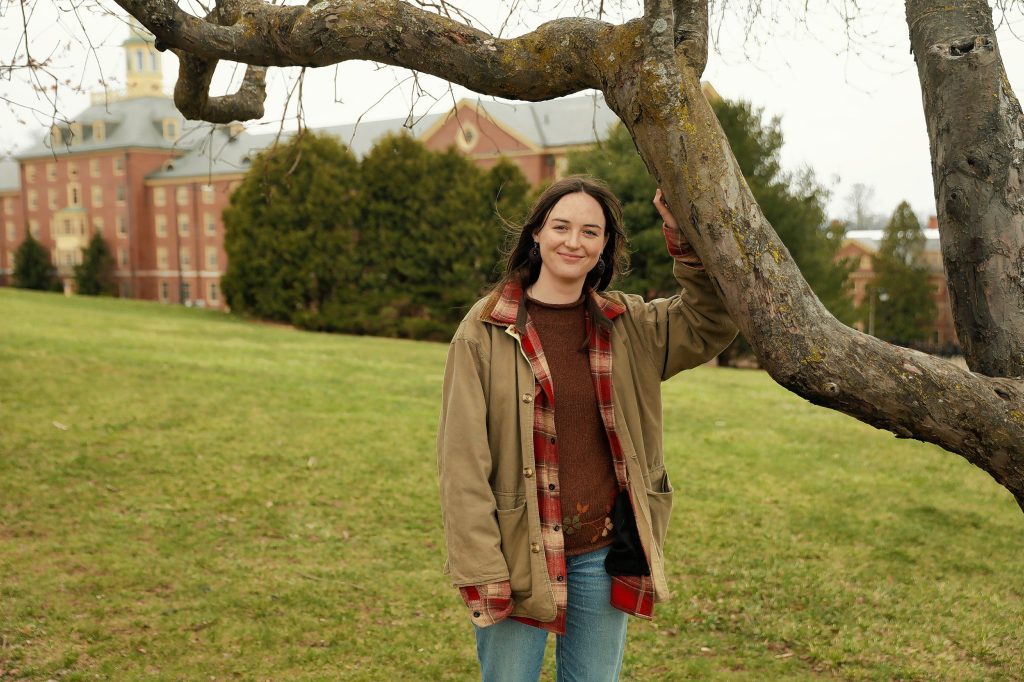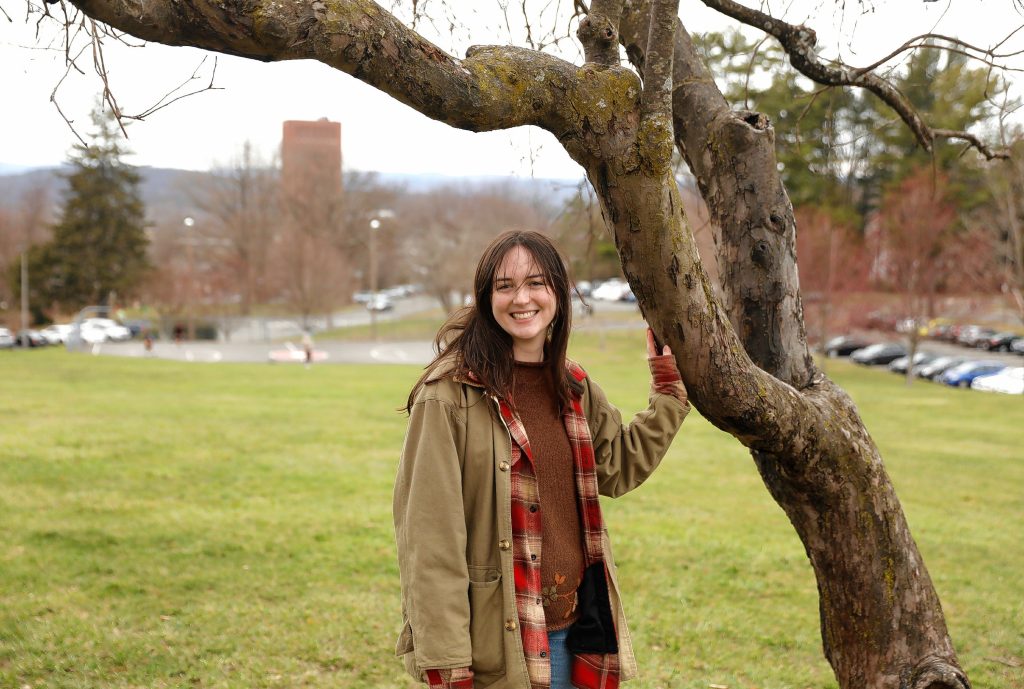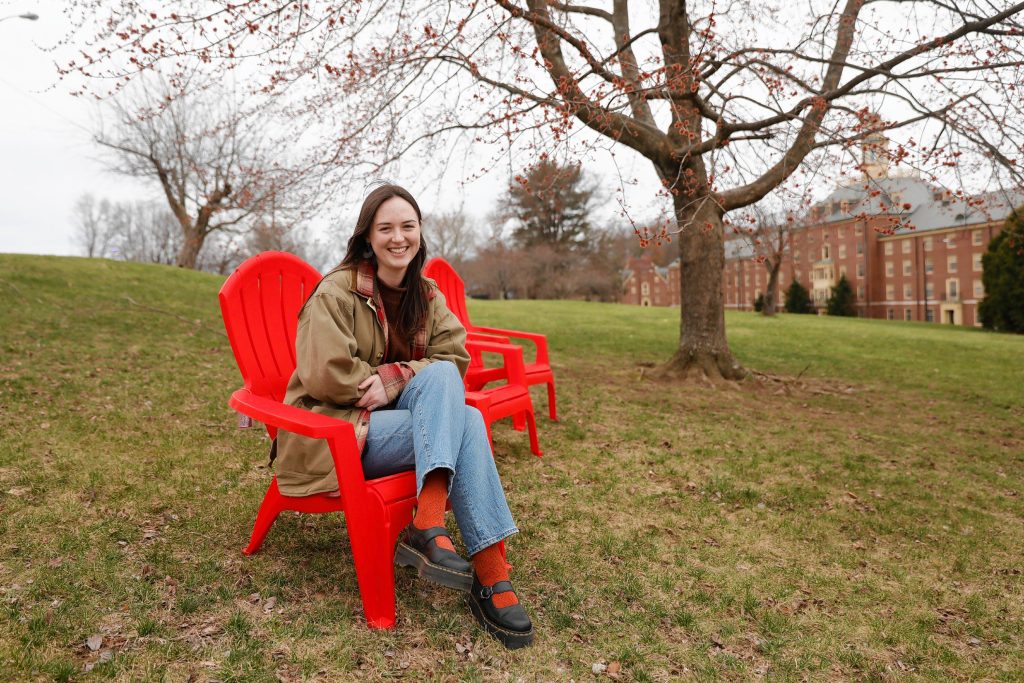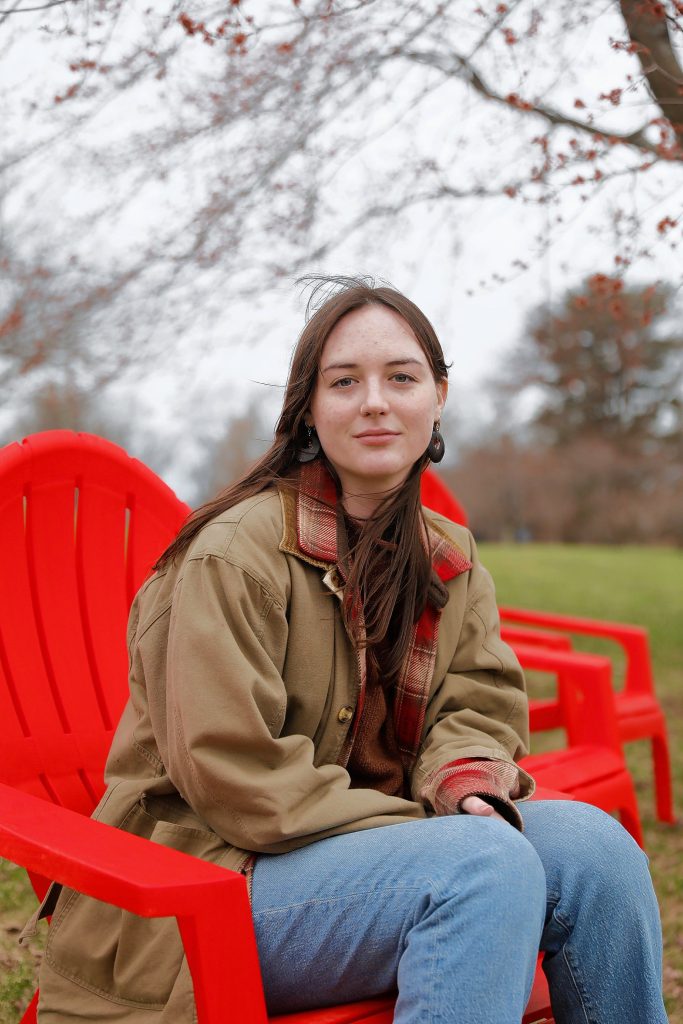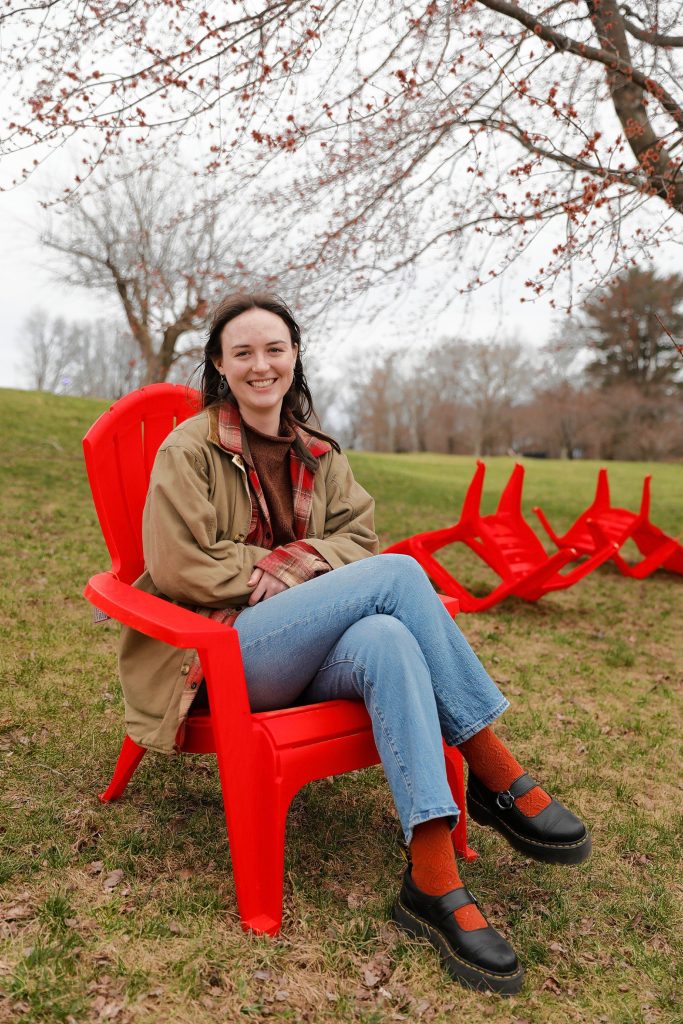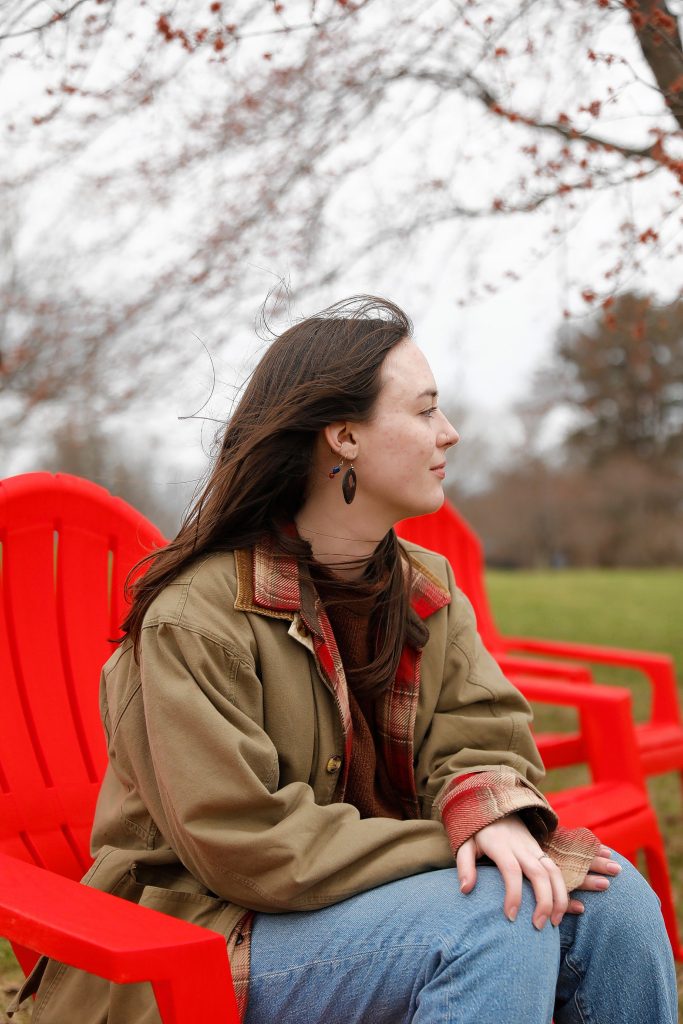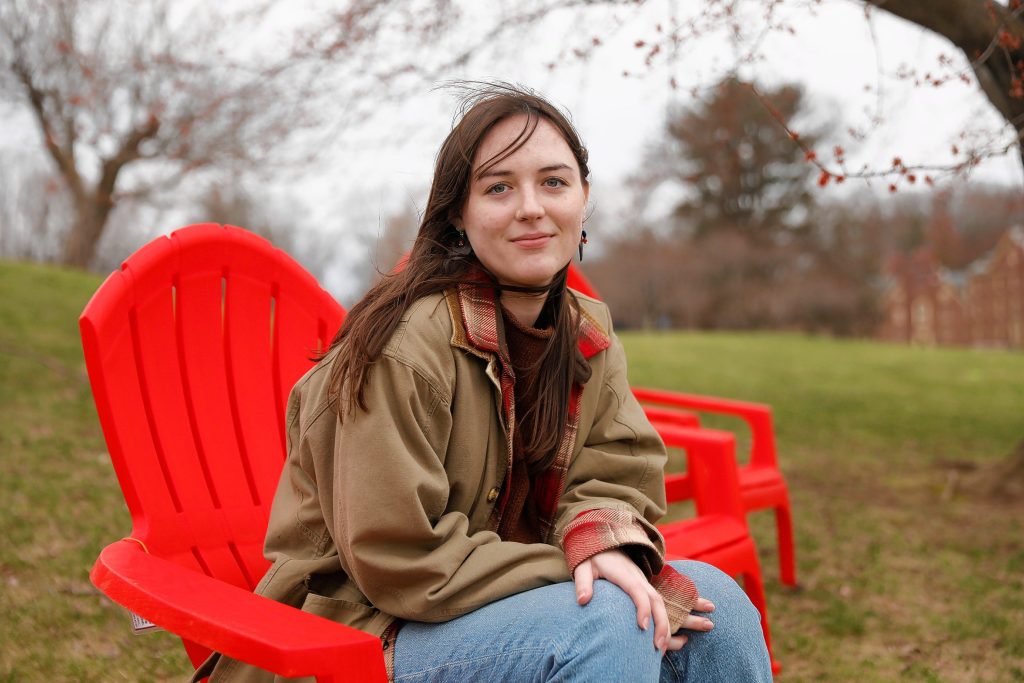“It was my duty,” said UMass junior Liz Mawrey, upon taking the reins of a legendary but nearly dormant outfit that fought to reform brutal and inane marijuana laws for over 30 years. In the fall of 2021 a post appeared in the Campus Pulse looking for people to join the Cannabis Reform Coalition. ‘“You should join this club,’” said a friend, ‘I know how much you love weed.’ But I really cared about advocating for people’s rights.”
Mawrey’s entire freshman year took place online. Once back in Amherst, though, she tried to get in touch with the CRC, which turned out to be no easy task. “It was on its last legs, about to be shut down,” said Mawrey, who soon became its president and “spent all of last year bringing the whole thing back to life. It’s a long time coming, to get over COVID and get back on our feet.”
To help with that, Mawrey was counseled by past members, like former president Claire Walsh, and longtime CRC advisers Marvin Cable and Dick Evans.
Ironically, the reason for CRC’s seeming fade into history can be traced to 2016 and the legalization of pot in Massachusetts. Indeed, in October of 2021, CRC members past and present celebrated “Mission (Truly) Accomplished” at Evans’ home and even renamed themselves the Cannabis Education Coalition.
“It’s the oldest college-based marijuana reform organization in the country,” said Evans, who chaired the 2016 Marijuana Legalization campaign. “The CRC boldly stood up to the anti-drug hysteria of the ‘80s and ‘90s, when dealers, growers and users were sent to jail. They sponsored the ‘Know Your Rights’ program in the middle of the war on drugs.”
“I’m not aware of many reform organizations that actually accomplished what they set out to do, but the CRC was one,” said Evans. “It remains alive and well. At their event last fall I spoke to a freshman who couldn’t remember a time when pot wasn’t legal.”
Mawrey’s new mantra is “We celebrate but continue to fight,” with ending prohibition nationally topping the CEC’s current agenda. “We have members from other states; they experience the culture here — it’s not Texas. One country so divided, always changing, always trying to change laws, Texas too. In fact, Texas changes by the hour, we can’t keep up with it,” she laughed.
The organization has about 10 core members but a slew of followers, known to frequent the group’s “Hill Chills,” sort of on-campus social hours where one might steal away from the labs and lectures and dig some righteous herb, including many international students not accustomed to out-in-the-open grass. “It’s just us being who we are,” Mawrey says. “It’s all about erasing the stigma. The Hill Chill is mostly a positive force, but some people are really shocked. ‘How does the school let you do this?’ ‘Cause we’ve been here since 1991,” Mawrey responds, emphasizing that the university does not officially sanction such events.
“We meet so many students who know nothing about the movement versus the war on drugs, nor about the thousands of people still in prison for marijuana,” she said. The CEC strongly supports the work of the Prison Abolition Initiative. “It’s shocking to not be shocked. So absurd. But it’s taken a huge turn, so much more normal to talk about it. Medical, recreational, mushrooms, psilocybin, all part of the dialogue.”
But the signature event for the organization has always been Extravaganja, an all-day celebration of cannabis activism that took place April 15 at the Franklin County Fairgrounds, the 29th in a series and the first one after COVID. “Greenfield was very welcoming,” said Mawrey, “the police told us they way prefer cannabis events than those featuring alcohol, way easier to maintain a safe place.”
In contrast with some recent booze-fueled blowouts, the chill vibe of the stoner crowd is actually coveted in 2023, a far cry from the movement’s earliest days, which longtime advocate Terry Franklin has likened to “Christianity in the Roman Empire.”
Of course, organizing all of Extravaganja’s bands, performers, vendors, artists, exhibits and volunteers is no waltz in the park for an English major in the middle of cramming for midterms.
Unlike many of her classmates Mawrey did not have pot-toking parents. “They’re from South Africa, where it’s fully illegal,” she said. She discovered weed as a teen, growing up in MetroWest. It changed her life.
“I’ve had anxiety my whole life, diagnosed in second grade,” says Mawrey. “I got my medical card when I turned 18. Lots of people have similar experiences. It helped me exponentially, just with daily tasks, with stress levels. Putting on (Extravaganja) would have been a shock for me.”
The Cannabis Education Coalition meets Mondays in nondedicated space in Worcester Commons, a bit removed from its heyday with the flyers and posters and people coming in and out. “We’ve got two measly lockers,” laughed Mawrey, “but we’re here.”
Her own vision of mission accomplished? “For everyone, everywhere, to be able to use a plant and grow a plant and not be punished, to not be busted for something that comes from nature.”
“They’re in good hands with Liz Mawrey at the helm,” said Evans. “In fact, nearly all the presidents I have known, and that’s most of them, have been excellent leaders. UMass should be very proud of this organization.”
“I don’t see myself stopping,” said Mawrey. “Running this club … it’s the best thing that’s happened to me since I came to the University.”

